Writer: Eleana Teran
 2 min read February 2023 – As the educational landscape in the Twin Cities adapts to the changing student needs, local education leaders are striving to overcome challenges, create job opportunities and close educational achievement gaps. In discussions with Invest:, leaders from a range of educational institutions emphasized their commitment to promoting diversity and affordability in education. These leaders shared their strategies for meeting the evolving expectations of students and addressing the issues that are crucial to the success of the greater region.
2 min read February 2023 – As the educational landscape in the Twin Cities adapts to the changing student needs, local education leaders are striving to overcome challenges, create job opportunities and close educational achievement gaps. In discussions with Invest:, leaders from a range of educational institutions emphasized their commitment to promoting diversity and affordability in education. These leaders shared their strategies for meeting the evolving expectations of students and addressing the issues that are crucial to the success of the greater region.
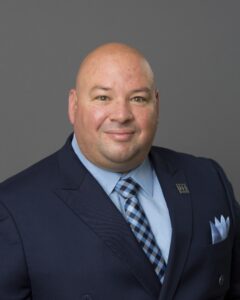
Rolando García, president of North Hennepin Community College
Rolando García, president of North Hennepin Community College emphasized the importance of racial equity for higher education. The college was designated as a Truth, Racial Healing and Transformative Campus Center by the Association of American Colleges and Universities (AAC&U). “NHCC was one of 14 new campus centers nationwide to receive this designation, and we are the first and only community college in Minnesota with this designation. The goal is to maximize equitable community building through racial healing using the TRHT framework. NHCC will receive a network of support and national evaluators to guide the development of purposeful action that dismantles racial hierarchies and structural barriers, both within the campus and the local community. NHCC was selected based on our demonstrated commitment to racial equity,” said García.
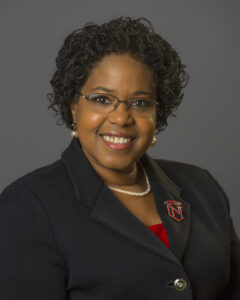 Joyce Ester, president of Normandale Community College
Joyce Ester, president of Normandale Community College
Normandale Community College President Joyce Ester stressed the importance of the college’s revamping of its curriculum to better equip students for successful careers, as well as to bridge any skill gaps. To this end, the college recently introduced a new program, Sirtify, aimed at diversifying the K-12 education workforce by attracting Black men into teaching. This program is open to a wide range of individuals, from recent high school graduates to those considering teaching as a career change.
“We also have a program called Sped Up designed to increase underrepresented teachers in special education. Less than 1% of K-12 teachers in Minnesota are Black men and the data is clear that if Black male students have a teacher of color at some point in their education, they’re 33% more likely to graduate from high school. There’s a disproportionate number of children of color in special education, so diversifying the teaching workforce is imperative,” Ester said.
Chris Wester, director of the International School of Minnesota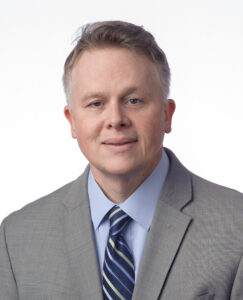
Chris Wester, director of the International School of Minnesota, highlighted the school’s approach to fostering global education. By doing so, students are less likely to experience assimilation problems when they attend college as they are already familiar with different cultures and able to adjust more quickly to new surroundings compared to other young adults. The school’s commitment to diversity prepares students for a seamless transition to the diverse college environment, making it easier for them to interact and understand students from around the world.
“Culture is a very fragile ecosystem; we make sure there are constant gardeners within our school who are maintaining it. It doesn’t take much to disrupt that culture but it does take a lot of effort and intentionality to maintain it. We have a lot of stakeholders with students, parents and staff who are working to ensure that we are creating a harmonious school,” said Wester.
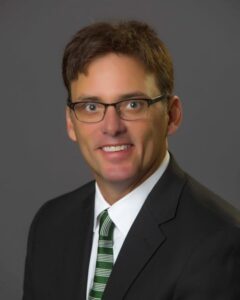 Joseph Mulford, president of Pine Technical & Community College
Joseph Mulford, president of Pine Technical & Community College
Joseph Mulford, president of Pine Technical & Community College, spoke about the college’s efforts to provide career training opportunities that lead to quick employment. To achieve this, the college has launched a new scholarship program. “Pine County is the only county in Minnesota and maybe one of the only counties in the Midwest that allows that. It covers all of our high-school graduates. They can attend Pine Technical & Community College for free, plus they receive a $1,000 stipend to support their book purchases or tools or things like that. We’ve worked with both the county, a governmental agency and a private donor to make sure that all those high schools and by extension all the high-school graduates can get two years of free college.”
Joy Bodin, interim president of Hennepin Technical College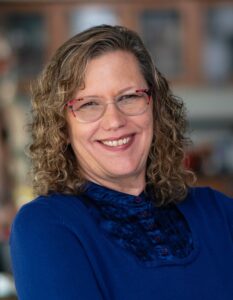
Joy Bodin, interim president of Hennepin Technical College, spoke about the college’s diverse student body, with an average age of 27. “A lot of our students start at university or go into the workforce before coming to train here.” According to Bodin, the college’s primary programs, including information technology, auto mechanics, machine tooling and HVAC, are in high demand, with employers actively participating in the training process. This provides students with invaluable opportunities to cover education costs while they learn and gain real-world experience.
“I consider us the best value in the region in education. In a typical year, it costs students $6,000 to attend the college. Many of our students, whether they are in the Ford ASSET program or the Medium-Heavy Truck program, have access to paid internships. Employers are helping pay their tuition, sometimes they are paying stipends for housing. For example, in our Robotics program, we have apprenticeships where students get paid for 40 hours a week. Half of the time they are working and the other half they are taking classes. Lastly, we have a lot of workforce scholarships from legislators and employers that help keep costs down,” said Bodin.
For more information visit:

